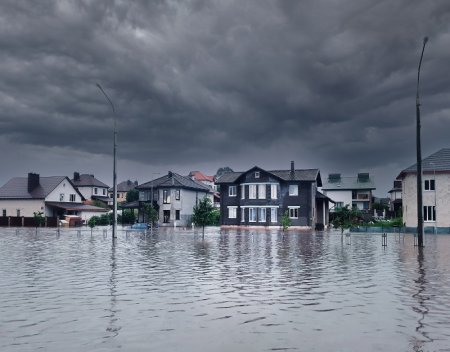Blog Categories
- Appliances Four
- Athletic Seating
- Auto Helpers
- Automated Stock Rooms
- Chocolate Four
- CuraFlo
- Damaged Goods Dating
- Flood Insurance Four
- Game Addict
- Hi Tech Pest Control
- HVAC Four
- Medical Labels Four
- Mental Health Four
- National CWS
- Promotional Ideas
- Seguros Lara Insurance
- Stem Cell Worx
- The Hidden Truth
- The Last Refuge
- The Mozilla Blog
- Video Editing Four
- Web Design Dev
- Website Development Four
- Windows Blog
when should I get flood insurance

Deciding when to get flood insurance depends on various factors, including your location, risk of flooding, financial situation, and whether you have a mortgage. Here are some key considerations to help you determine when to get flood insurance:
Location: If you live in an area prone to flooding, such as a coastal region, floodplain, or near a river, it's essential to consider purchasing flood insurance regardless of whether flood insurance is required by your mortgage lender.
FEMA Flood Maps: Check the Federal Emergency Management Agency (FEMA) flood maps to determine your property's flood risk zone. Properties located in high-risk flood zones (designated as Special Flood Hazard Areas or SFHAs) are more likely to experience flooding and may require flood insurance.
Mortgage Requirements: If you have a mortgage from a federally regulated or insured lender and your property is located in a high-risk flood zone, you may be required to purchase flood insurance as a condition of the mortgage.
Cost-Benefit Analysis: Consider the potential financial impact of flood damage on your property and belongings. Evaluate the cost of flood insurance premiums against the potential cost of repairing or replacing damaged property without insurance coverage.
Seasonal Factors: Assess the seasonal patterns of flooding in your area. If your region is prone to seasonal flooding during certain times of the year, it may be advisable to purchase flood insurance before the start of the flood-prone season.
Peace of Mind: Even if you live in a moderate to low-risk flood zone, purchasing flood insurance can provide peace of mind knowing that you have financial protection against unforeseen flood-related losses.
NFIP Waiting Period: Keep in mind that there is typically a waiting period before flood insurance coverage takes effect. For policies purchased through the National Flood Insurance Program (NFIP), there is a 30-day waiting period from the date of purchase unless the policy is required for a mortgage closing.
Changing Risk Factors: Assess any changes in your property's flood risk factors over time, such as changes in local development, land use, or natural factors (e.g., climate change, increased precipitation). Reevaluate your need for flood insurance periodically based on these changing risk factors.
Ultimately, it's important to weigh the potential risks and benefits of flood insurance based on your specific circumstances and make an informed decision about when to purchase coverage. Consulting with insurance agents or experts knowledgeable about flood risk in your area can also provide valuable guidance in determining the appropriate timing for obtaining flood insurance.
Re Posted From: when should I get flood insurance

Deciding when to get flood insurance depends on various factors, including your location, risk of flooding, financial situation, and whether you have a mortgage. Here are some key considerations to help you determine when to get flood insurance:
Location: If you live in an area prone to flooding, such as a coastal region, floodplain, or near a river, it's essential to consider purchasing flood insurance regardless of whether flood insurance is required by your mortgage lender.
FEMA Flood Maps: Check the Federal Emergency Management Agency (FEMA) flood maps to determine your property's flood risk zone. Properties located in high-risk flood zones (designated as Special Flood Hazard Areas or SFHAs) are more likely to experience flooding and may require flood insurance.
Mortgage Requirements: If you have a mortgage from a federally regulated or insured lender and your property is located in a high-risk flood zone, you may be required to purchase flood insurance as a condition of the mortgage.
Cost-Benefit Analysis: Consider the potential financial impact of flood damage on your property and belongings. Evaluate the cost of flood insurance premiums against the potential cost of repairing or replacing damaged property without insurance coverage.
Seasonal Factors: Assess the seasonal patterns of flooding in your area. If your region is prone to seasonal flooding during certain times of the year, it may be advisable to purchase flood insurance before the start of the flood-prone season.
Peace of Mind: Even if you live in a moderate to low-risk flood zone, purchasing flood insurance can provide peace of mind knowing that you have financial protection against unforeseen flood-related losses.
NFIP Waiting Period: Keep in mind that there is typically a waiting period before flood insurance coverage takes effect. For policies purchased through the National Flood Insurance Program (NFIP), there is a 30-day waiting period from the date of purchase unless the policy is required for a mortgage closing.
Changing Risk Factors: Assess any changes in your property's flood risk factors over time, such as changes in local development, land use, or natural factors (e.g., climate change, increased precipitation). Reevaluate your need for flood insurance periodically based on these changing risk factors.
Ultimately, it's important to weigh the potential risks and benefits of flood insurance based on your specific circumstances and make an informed decision about when to purchase coverage. Consulting with insurance agents or experts knowledgeable about flood risk in your area can also provide valuable guidance in determining the appropriate timing for obtaining flood insurance.
Re Posted From: when should I get flood insurance

